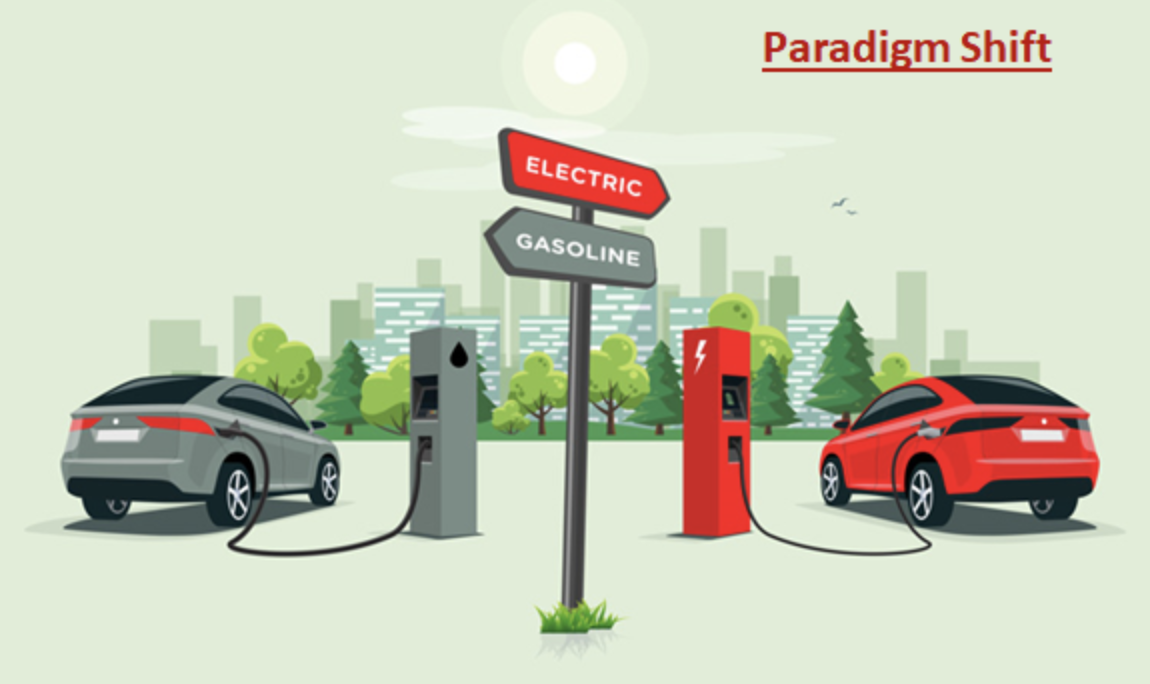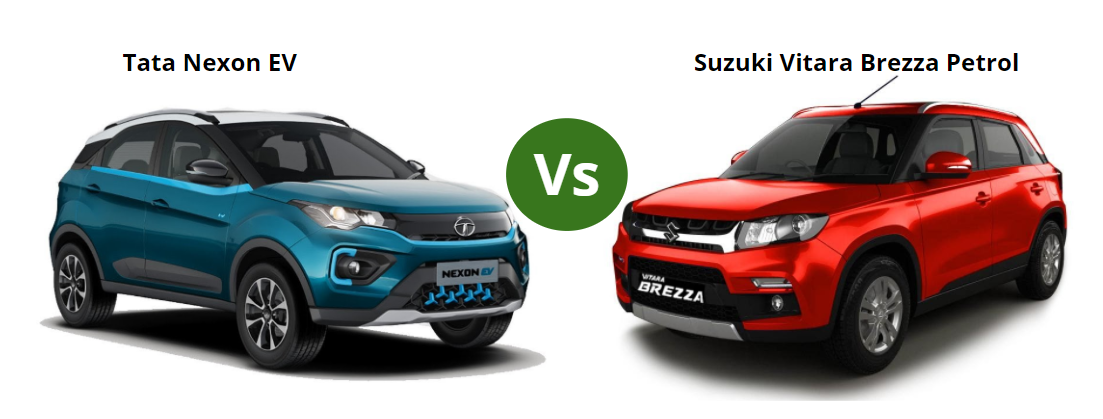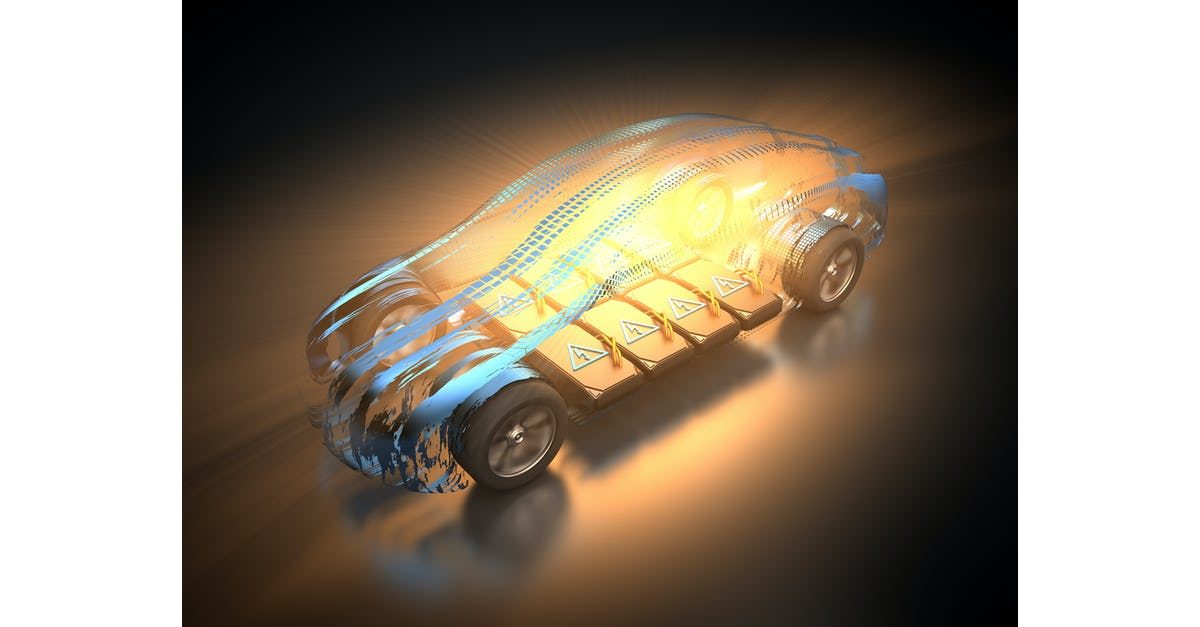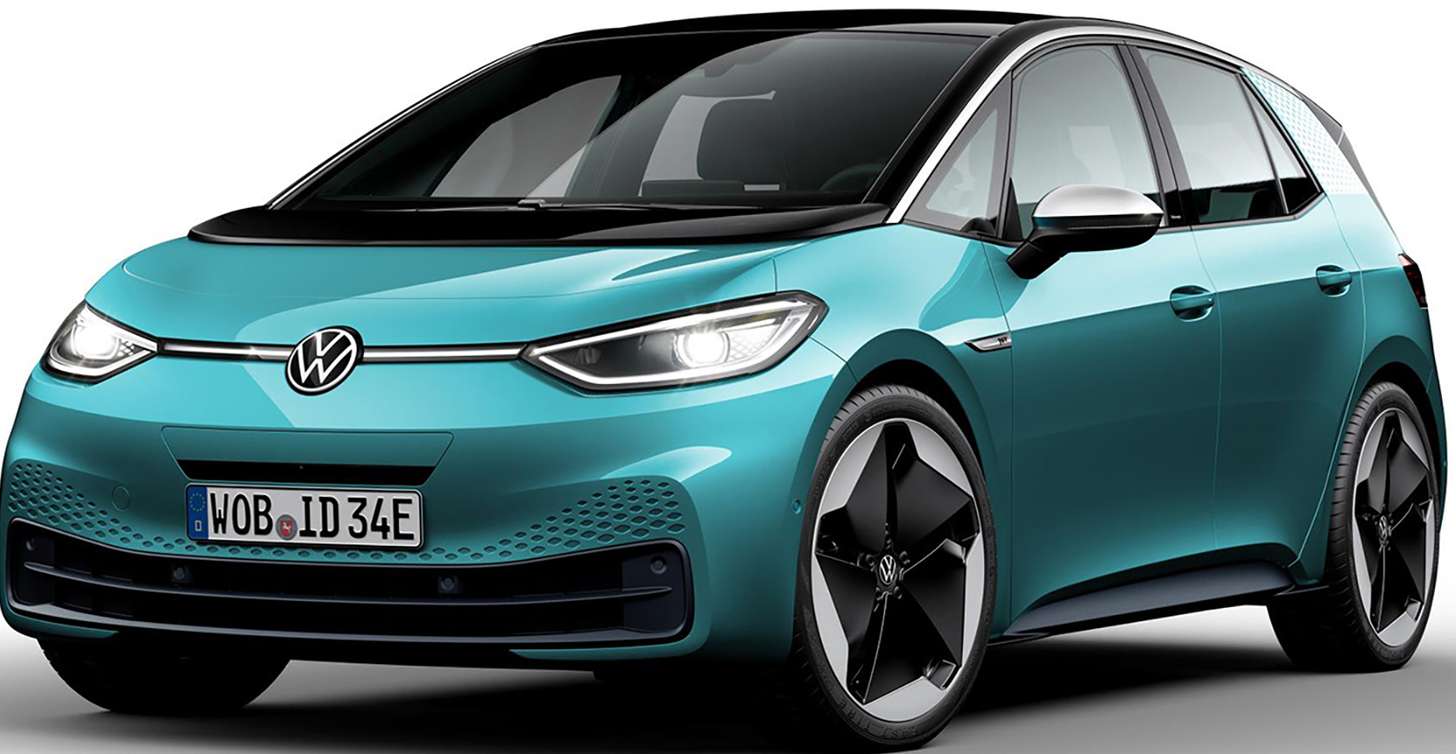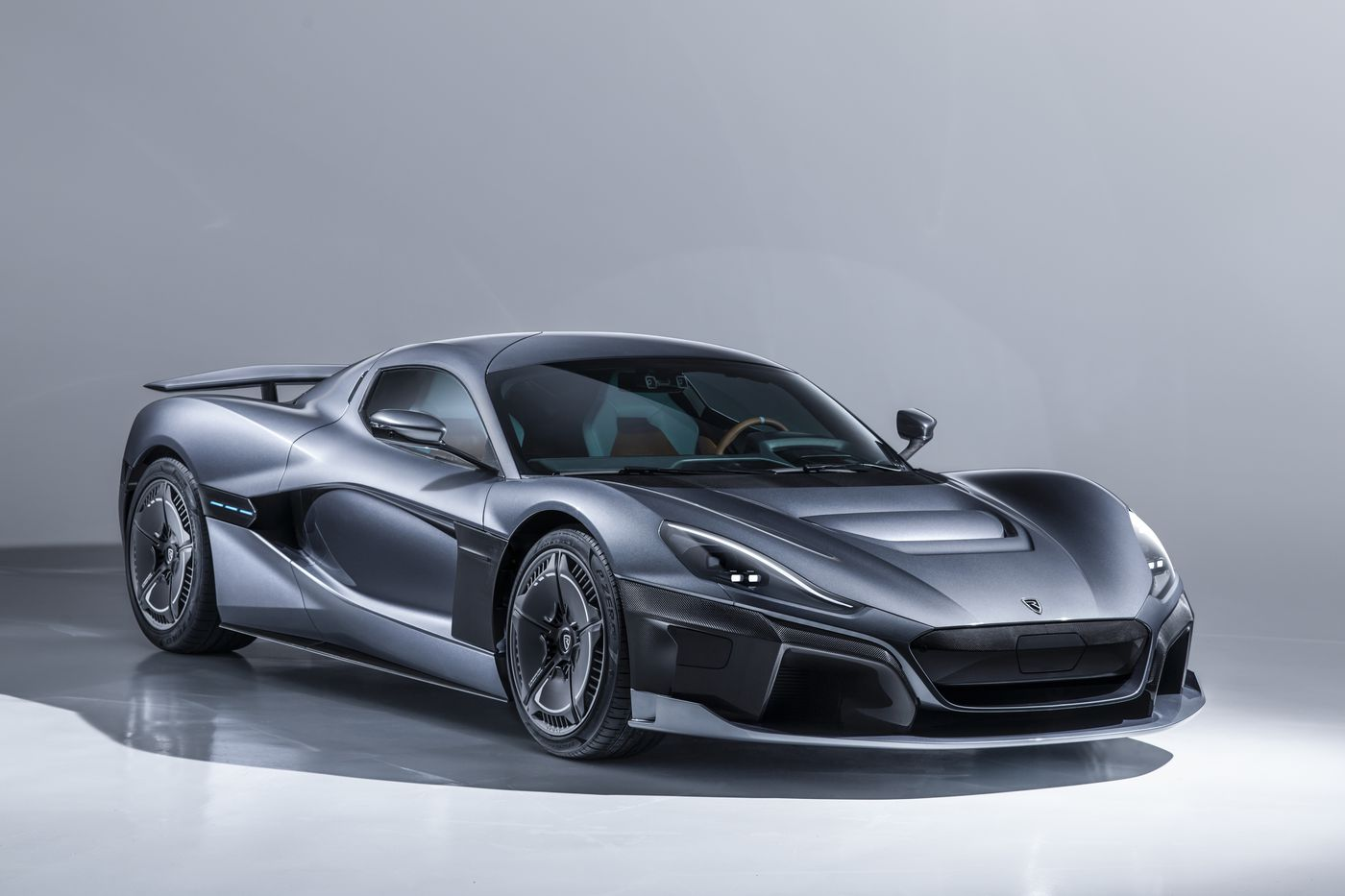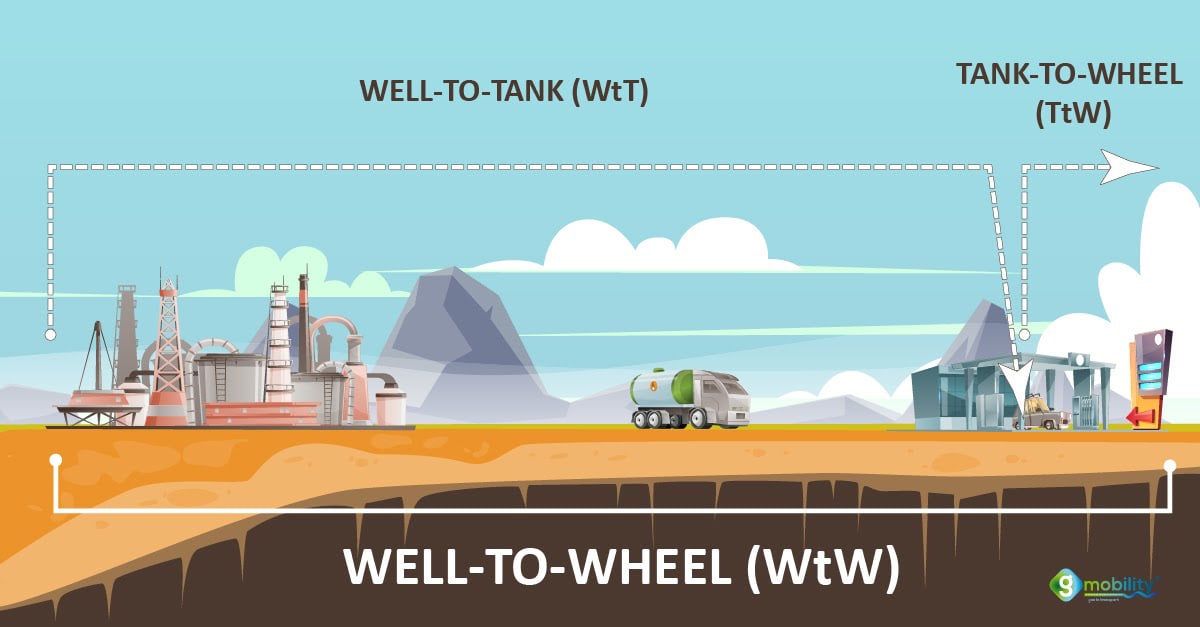5 EV myths busted!
EVs have everything to satisfy both the emotional and rational needs of a consumer. If you are someone who is looking to buy an EV and hesitant to do so because you are unsure, read on.
In Summary:
-
EVs are faster than Petrol / Diesel cars
-
EVs are a lot safer
-
The range of an EV is more than adequate
-
EV batteries are more durable than the vehicle itself
-
Charging an EV is as easy as charging a mobile phone
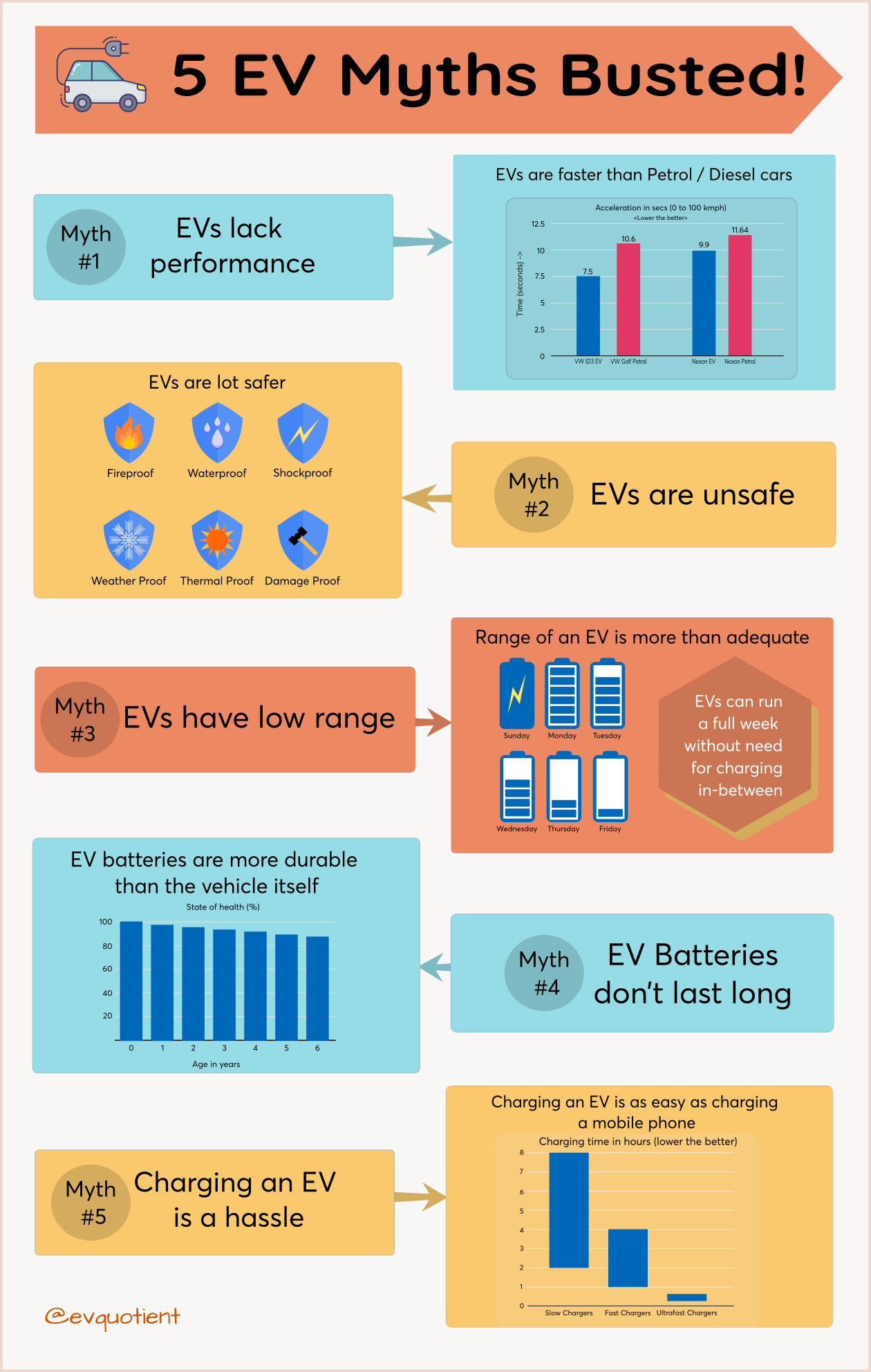
Myth #1: Electric vehicles lack the performance and hence not thrilling
Reality: In fact, quite the opposite, Electric vehicle's performance is superior to ICE cars
The absence of a clutch and complicated gearbox mechanism makes EV deliver power instantly to the wheels. This makes EVs faster and zippier than Petrol / Diesel cars. In fact, the fastest road car in the world is an EV: Tesla model S does 0 to 100kmph in just 2.4 secs
Here's the comparison of performance between Petrol cars and EVs: <Lower the better>
-
VW ID3 EV zips from 0 to 100kph in 7.5 secs Vs 10.6 secs for VW golf petrol
-
Nexon EV takes 9.9 secs vs 11.64 secs for Nexon petrol.


Myth #2: Electric vehicles are not safe
Reality: Electric vehicles go through stringent safety checks before its being sold
Electric vehicles go through rigorous testing standards which are being enforced Globally and Locally. Some of the tests include: Leak proofing (IP67), Compliance to Functional safety standards (ISO 26262) & Performance testing (Reg 100)
In addition, to this EV batteries undergo extensive validation during product development including the following abusive tests to simulate a crash and thermal shocks.
-
Vibration testing
-
Thermal shock testing
-
Fire resistance
-
Short circuit protection
-
Over and under-charge protection
-
Cell piercing
-
Battery box drop from a height
The below data speaks volume about the safety of an EV compared to an ICE car (Petrol / Diesel car):
Petrol/Diesel cars are 10 times more likely to catch fire than EVs. Based on 2018 data from the U.S. Transportation department, Tesla found its cars were involved in one fire for every 200 million miles driven compared to one Petrol/Diesel car fire for every 20 million miles, which is 10 times more than EVs.


Myth #3: Range of an EV is inadequate
Reality: With EVs, you can travel the full week without charging in-between
Average city dweller travels less than 50km per day (whether you are in US, UK or India). Most of the new-gen EVs have a range of at least 250km which means you only need to charge once in a week. This range will further improve in the coming years as Battery manufacturers are exploring different technologies to increase energy density

Myth #4: EV batteries don’t last long and hence need frequent replacement
Reality: EV Batteries are more durable and can outlast vehicle life.
Condition of an electric vehicle battery is represented as a state of health (SOH). Batteries start their life with 100% SOH and over time they deteriorate. For example, a 30 kWh battery that has 90% SOH would effectively act like a 27 kWh battery.
Canada based telematics provider, Geotab analyzed the battery health of 6,300 fleet and consumer EVs, representing 1.8 million days of data. The below graph provides aggregated average degradation data for 21 distinct vehicle models, representing 64 makes, models, and years. This clearly shows that in 6 years the batteries have degraded by less than 14% on an average (~2.3% degradation per year). To provide you with further assurance manufacturers offer 8 years warranty on EVs.

Myth #5: Charging an EV is a hassle
Reality: Charging EVs is a lot simpler, you can do it while you are sleeping, working or shopping.
We are all used to charging smartphones at home and work, charging EVs is as simple as that. Statistics reveal that more than 80% of times EVs are being charged either at home or at office locations. In fact, to add to the comfort, destination chargers are cropping up at Cinema halls and Retail parks for EV owners to charge while they are busy doing the weekend shopping
Fast charging and ultrafast charging options are also available which provides 0 to 80% charging in less than 20 to 30mts

Hope you found this article useful. To receive automatic notification for our future articles, please don’t forget to subscribe below
Team "EV Quotient"
(EV Quotient is a platform to discuss and learn about electric vehicles. It’s an initiative by a team of experienced Automotive professionals with Global Exposure)

